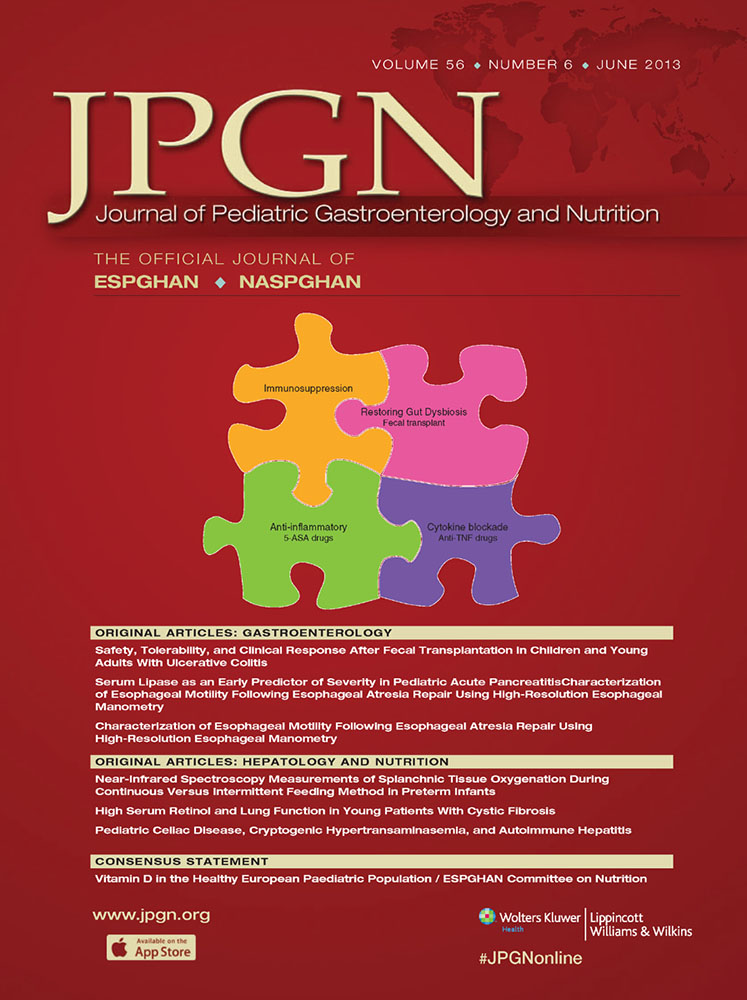Celiac Disease–Associated Autoimmune Hepatitis in Childhood
Long-Term Response to Treatment
The authors report no conflicts of interest.
ABSTRACT
Objectives:
Celiac disease (CD) is common in patients with autoimmune liver disease (AILD); however, the long-term response to treatment of patients with AILDs coexistent with CD has not been explored in detail. The aim of the present study was to analyze the features and the long-term response to immunosuppressive treatment in children with autoimmune hepatitis (AIH) associated with CD.
Methods:
Retrospective and prospective evaluation of patients followed at a single center.
Results:
Among 79 patients with AIH, 15 (19%) had CD (9 type 1, 3 type 2, 3 seronegative). In the group of patients with AIH and CD, female sex was significantly more represented than in the group of patients with AIH alone; also, in the former group, diagnosis was made significantly earlier (P < 0.05). All of the 15 patients on a gluten-free diet achieved sustained remission when treated with prednisone and azathioprine or cyclosporine. The mean period of follow-up was 73 months; discontinuation of therapy was attempted in 9 patients while in remission: 4 patients relapsed, 5 (33%) could definitively stop immunosuppressive treatment with a mean period of treatment-free sustained remission of 89 months (range 26–174). In the same period, treatment discontinuation, attempted in 24 of 64 patients with AIH without CD, was successful in 5 patients (8%; P < 0.05).
Conclusions:
Patients with AIH coexisting with CD achieve treatment-free sustained remission in a significantly higher proportion, when compared with patients with AIH without CD, suggesting a possible long-term adjuvant effect of a gluten-free diet.




